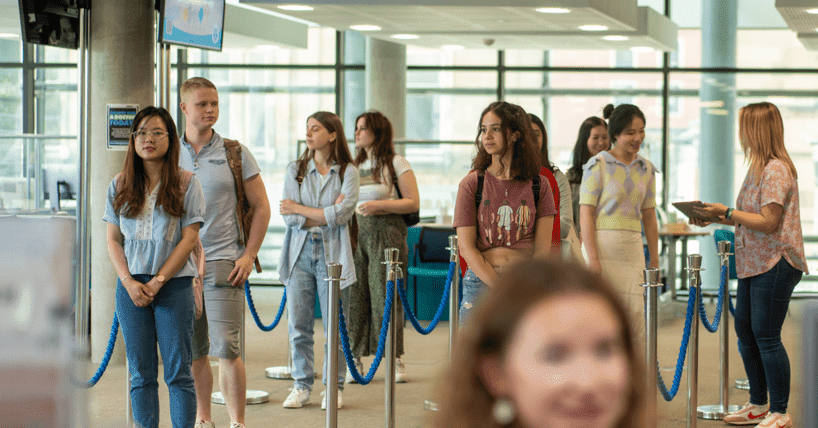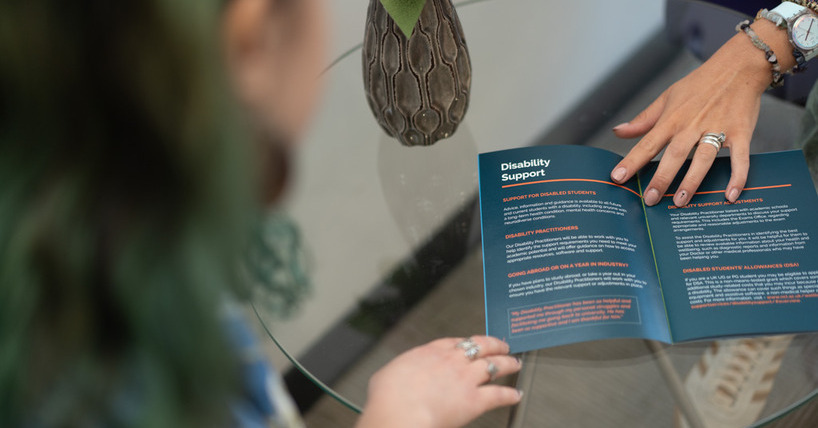Disability Support
If you have a disability or long-term health condition, we're here to support you in your studies and university life.
Emergency and crisis support
Urgent and emergency care - ☎ 999
Papyrus Hopeline247 - ☎ 0800 068 4141
Wellbeing support
Our resources page offers support and advice
Request wellbeing supportAbout
Our Disability Service is here to provide advice, guidance and support to students with a range of impairments, disabilities, health conditions, neurodiverse conditions such as autism and specific learning differences/difficulties.
Our team of specialist practitioners will ensure that we support your access to and participation in learning. We'll work with you to find the best adjustments and support along with your academic school.
Under the Equality Act a person is disabled if they have a physical or mental impairment that has a long-term and substantial (more than minor or trivial) adverse effect on their ability to carry out normal day-to-day activities. Long-term means that it has lasted or is likely to last for at least 12 months or for the rest of a disabled person’s life.
Appointments
Based in our King's Gate building, we offer the following types of appointments:
- in-person
- remotely via video call
- by phone
Prospective students - please advise us of your disability support needs by emailing the disability team
Current students - please complete the online Disability support form below:
My Disability Practitioner has been so helpful and supported me through my personal struggles and facilitated me going back to university.







 (1).jpg)